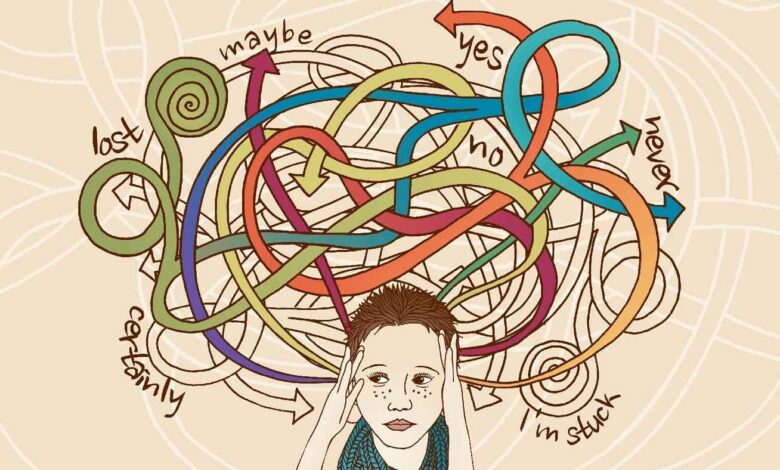Is Overthinking A Cause Of Mental Health Issues
Delve into the intricate connection between overthinking and mental health. Discover how excessive thought patterns can fuel anxiety, depression, sleep disturbances, and decision paralysis. Explore practical coping strategies to break free from overthinking and cultivate mental well-being.


The Impact of Overthinking on Mental Health: Understanding the Link
In today’s fast-paced and complex world, it is not uncommon for individuals to find themselves caught in a relentless cycle of overthinking. Overthinking refers to the excessive and repetitive process of dwelling on thoughts, worries, or concerns beyond what is necessary or productive. While it is natural for the mind to engage in some level of contemplation, excessive overthinking can have detrimental effects on mental health. In this article, we will explore the connection between overthinking and mental health issues, shedding light on the impact this thought pattern can have on overall well-being.
Understanding Overthinking:
Overthinking often involves repetitively analyzing past events or obsessively worrying about future outcomes. People who tend to overthink may constantly second-guess their decisions, ruminate on negative experiences, or have persistent doubts and fears. This repetitive thought process can lead to a state of mental and emotional exhaustion, affecting various aspects of an individual’s life.
The Vicious Cycle:
Overthinking can create a vicious cycle wherein excessive thoughts and worries fuel negative emotions, which, in turn, intensify the overthinking. This cycle can lead to heightened stress, anxiety, and even depression. Overthinking amplifies the impact of everyday stressors, making them appear more overwhelming and challenging to manage.
Negative Effects on Mental Health:
- Anxiety Disorders: Overthinking is strongly associated with anxiety disorders, such as generalized anxiety disorder (GAD), social anxiety disorder, and panic disorder. The constant barrage of worrying thoughts can trigger intense feelings of unease, restlessness, and irritability.
- Depression: Overthinking often involves dwelling on negative events or experiences, reinforcing negative self-perception and eroding self-esteem. This negative spiral can contribute to the development or exacerbation of depressive symptoms.
- Sleep Disturbances: Overthinking can significantly disrupt sleep patterns. Racing thoughts and worries can make it difficult to relax and fall asleep, leading to insomnia or poor sleep quality. The resulting sleep deprivation further compromises mental well-being.
- Decision Paralysis: Overthinkers may struggle with decision-making, as they become trapped in a loop of analyzing every possible outcome and consequence. This indecisiveness can lead to missed opportunities, increased stress, and a sense of being overwhelmed by the simplest choices.
Coping Strategies:
- Mindfulness and Meditation: Practicing mindfulness techniques can help individuals cultivate awareness of their thoughts and detach from them, reducing the grip of overthinking.
- Challenging Negative Thoughts: Engaging in cognitive restructuring can help individuals identify and challenge negative or irrational thoughts, replacing them with more realistic and positive ones.
- Seeking Support: Talking to a trusted friend, family member, or mental health professional can provide a fresh perspective and offer guidance on managing overthinking patterns.
- Engaging in Relaxation Techniques: Activities such as deep breathing exercises, yoga, or engaging in hobbies can help redirect focus and promote relaxation, breaking the cycle of overthinking.
Conclusion:
While thinking is a fundamental aspect of human cognition, excessive and chronic overthinking can have severe implications for mental health. The negative impact of overthinking on individuals’ lives, including heightened anxiety, depression, sleep disturbances, and decision paralysis, cannot be overlooked. Recognizing the signs of overthinking and implementing coping strategies to manage this thought pattern are essential for promoting mental well-being. By fostering self-awareness, challenging negative thoughts, and seeking support, individuals can regain control over their thinking patterns and improve their overall mental health and quality of life.







